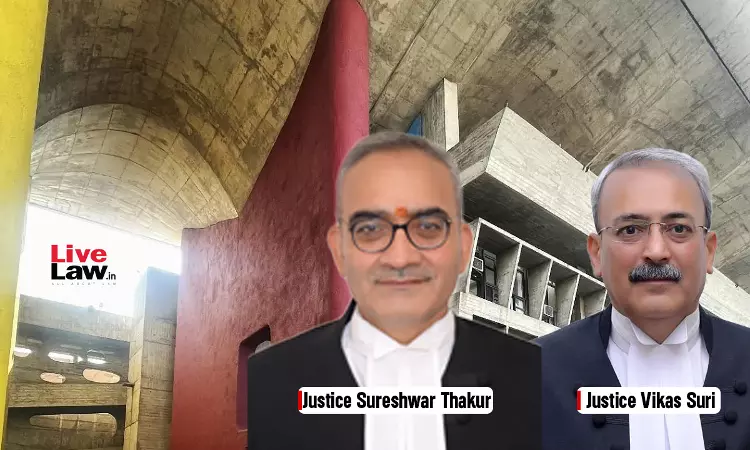- Home
- /
- High Courts
- /
- Punjab and Haryana High Court
- /
- Unilateral Conditions Imposed By...
Unilateral Conditions Imposed By State On Land Allotee Violate Constitutional Right To Property: Punjab & Haryana High Court
Aiman J. Chishti
27 Feb 2025 5:30 PM IST
The Punjab & Haryana High Court has made it clear that the Punjab Government's Greater Mohali Area Development Authority (GMADA) could not unilaterally alter contractual terms or impose extra charges not specified in the original allotment scheme.Justice Sureshwar Thakur and Justice Vikas Suri said, "Through the imposition of the impugned condition, there has been a unilateral...
The Punjab & Haryana High Court has made it clear that the Punjab Government's Greater Mohali Area Development Authority (GMADA) could not unilaterally alter contractual terms or impose extra charges not specified in the original allotment scheme.
Justice Sureshwar Thakur and Justice Vikas Suri said, "Through the imposition of the impugned condition, there has been a unilateral expropriation vis-a-vis the right of the subsequent allottee/transferees, thus to receive the subject plots, but with the same terms and conditions, whereons, their respective vendors received them from the respondent/GMADA concerned. Resultantly therebys the unilaterally made novated conditions from the original conditions, thus are declared to be unjust, and capricious wherebys they are required to be declared to be ultra vires the Constitutional right of property."
The Court was hearing a batch of petitions filed by original allottees or transferees of plots allotted by the GMADA under a land pooling scheme, challenging the demand for additional charges imposed by GMADA, including the Preferred Location Charge (PLC) and other costs mentioned in the allotment letter.
The petitioners argued that these charges were arbitrary, unjust, and not stipulated in the original scheme since the original letter of intent issued to allottees did not include any provision for additional charges beyond the agreed amount.
Opposing the plea, GMADA argued that subsequent buyers of plots should be treated differently from original landowners who received the plots under the land pooling policy and the additional charges were necessary due to cost escalations in development.
After hearing the submissions, the Court rejected GMADA's submission that the subsequent transferees should be treated differently. Since the scheme did not prohibit transfers and even allowed them upon payment of a transfer fee, the subsequent buyers inherited the same rights as original allottees.
"Both the original allottees and their transferees, do stand on a co equal footing, and, therebys there cannot be any distinction between the original allottees and their transferees nor therebys there appears to be any well founded intelligible differentia, thus having a nexus with the objective sought to be achieved," it added.
The Court further observed that the original terms of allotment, as outlined in the letter of intent, were binding on both the original allottees and subsequent transferees. No clause in the land pooling policy or the allotment scheme allowed additional financial burdens to be imposed unilaterally.
The bench found that "the impugned condition is an impermissible novation of the original contract entered into between the initial allottee and the respondents, wherebys when naturally the said novation condition, does openly breach the apposite initially made inviolable contractual covenant(s), inasmuch as, the said condition remaining not expressly mentioned in the initial letter of allotment, therebys the apposite subsequent introduction, only against the subsequent transferee(s), but makes it to be an untenably introduced condition."
In light of the above, the Court allowed the plea and said that "in case any of the petitioner(s) have deposited the charge (as claimed in the allotment letter), thus they are entitled to get the refund of the same. Accordingly, the GMADA is directed to, vis-a-vis the petitioners concerned, but within 2 months from today refund the impugned amounts, if deposited by the petitioner(s), thus before them, with simple interest @ 6% per annum from the date of such deposit."
It also directed the GMADA to ensure the delivery of the encumbrance-free possession of the plots alloted to the petitioner within a fortnight.
Title: Daulat Ram Bhatti v. State of Punjab [along with connected matters]
Citation: 2025 LiveLaw (PH) 98
Click here to read/download the order



